Chapter 2
First Businesses
Just seventeen, Richard Branson left the countryside and moved to one of the most exciting cities in the world. Great Britain had struggled to rebuild after the destruction it suffered during World War II.
But now many people had better jobs and the economy was improving. The capital was nicknamed “Swinging London.” By 1967 the city had become a center for fashion, music, and art. Much of the new music was popular with teens around Richard’s age. He wanted to write about music and other things the young people of London were interested in.
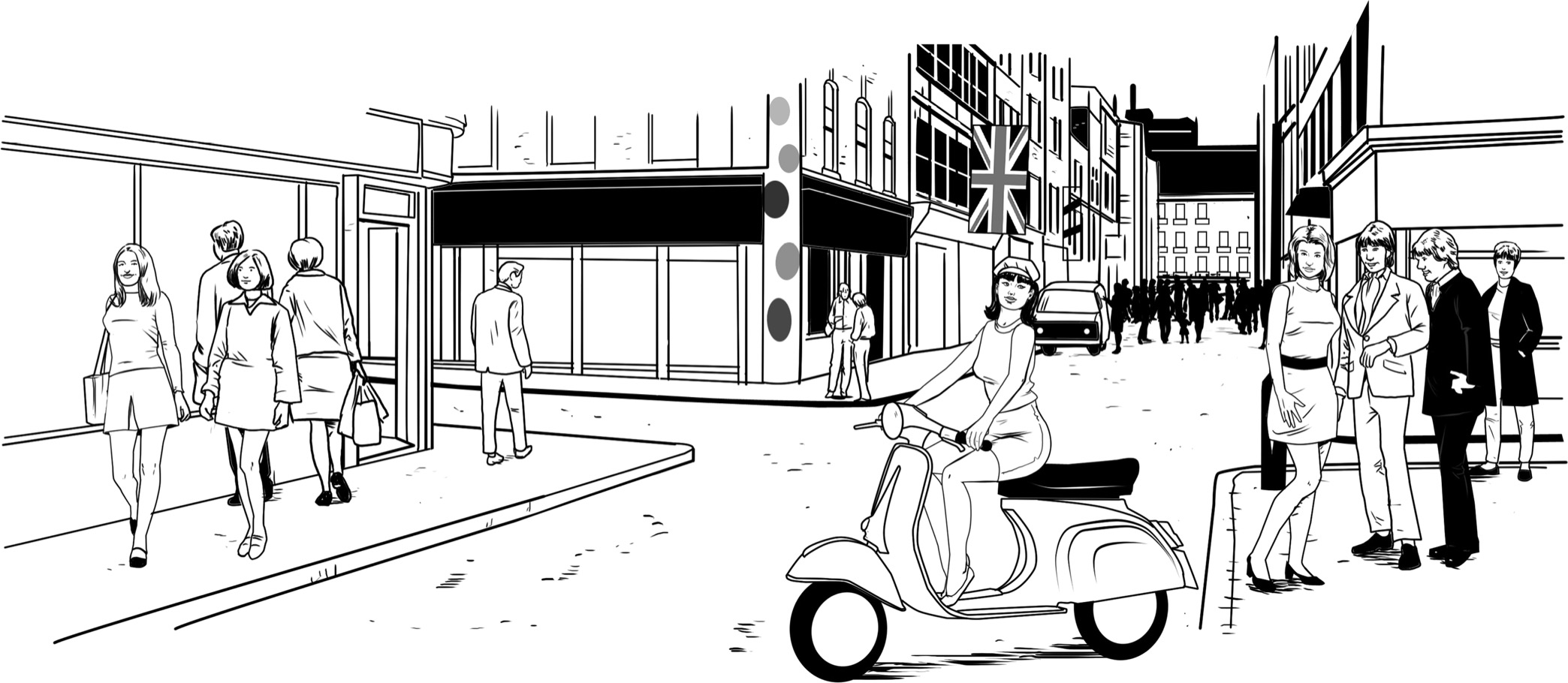
But starting Student wasn’t easy. Richard and Jonny Gems moved into the basement of the Gemses’ home. They had no money, and they slept on mattresses tossed on the basement floor. Eve Branson sometimes came down from Surrey to bring them food.
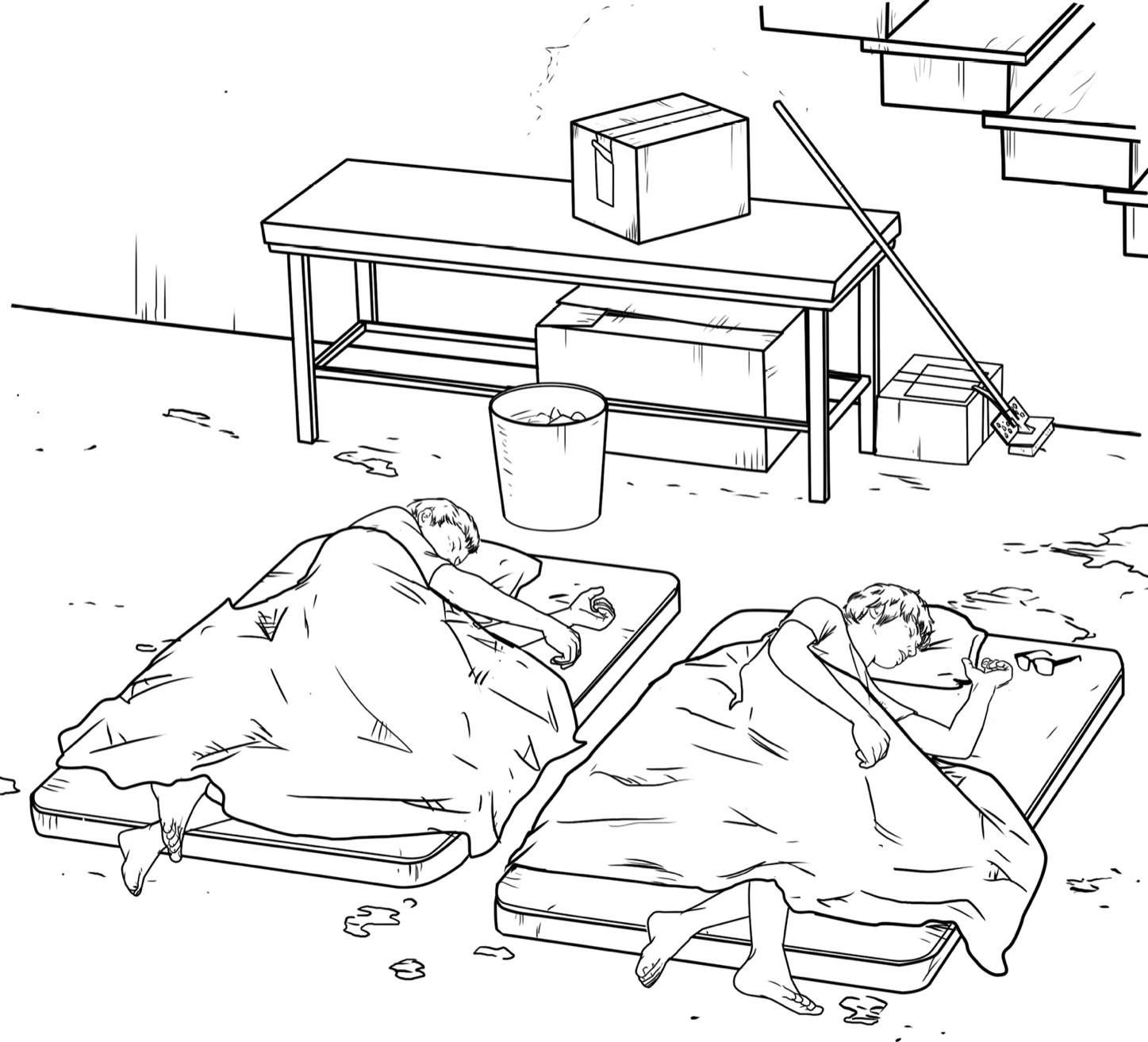

They set up their office in a dusty crypt—an underground vault sometimes used as a tomb—under a church. A local minister had loaned them the space for free. Richard and Jonny worked so hard, they didn’t even seem to notice the coffins all around them. Richard put a slab of rock on top of two of the coffins and used it as a desk!
Jonny knew which musicians were popular and what world events teenagers were talking about. He came up with most of the ideas for the magazine’s articles. Meanwhile, Richard managed the business side of Student. He kept looking for companies to buy ads, and contacted entertainers and government leaders for interviews. Richard was charming and had a way of convincing people to work with him. He was also stubborn. He refused to give up if people first said “no.”
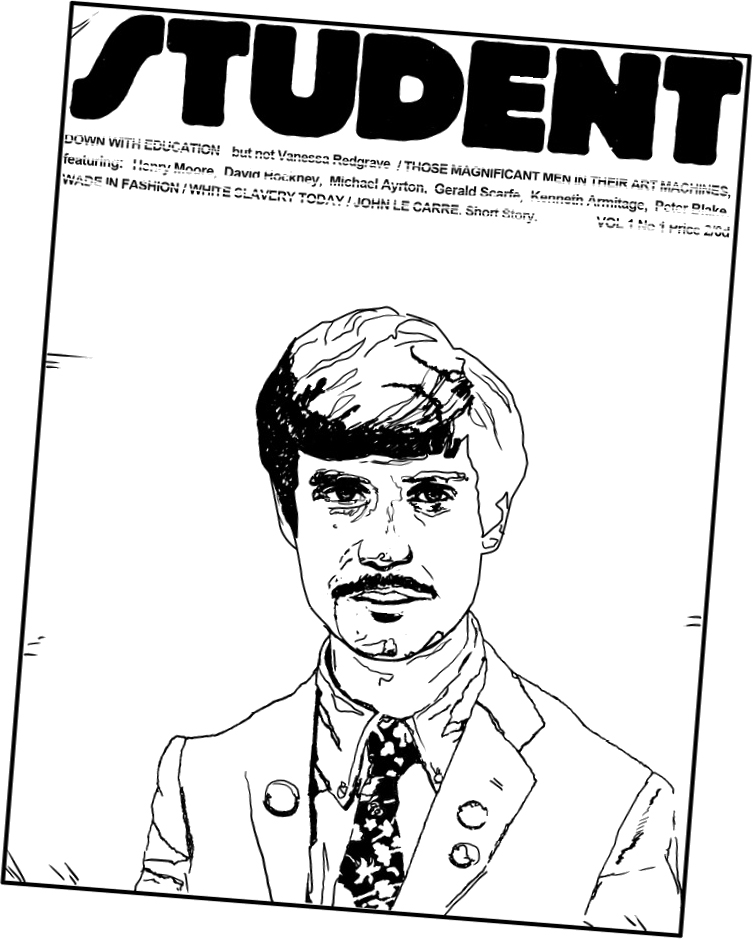
The first issue of Student appeared in January 1968. The two most important British bands of the time were the Rolling Stones and the Beatles.

Richard and Jonny enjoyed blasting both bands’ music while they worked. Richard turned on the charm and convinced Mick Jagger, the lead singer of the Rolling Stones, to be interviewed for Student. And Richard and Jonny both met with guitarist and singer John Lennon of the Beatles. Both Jagger and Lennon were immensely popular. Richard hoped these two major interviews would convince young people to buy Student. Having world-famous rock stars in the magazine made the more established British newspapers, magazines, and radio stations take Student seriously—even if its publishers were still in their teens.

Richard also wanted to write about the Vietnam War. Young people around the world thought that US involvement in Vietnam was a mistake. They felt that Vietnam was in the middle of a civil war and the United States had no right to interfere.
Richard and the Student staff protested against the war in Vietnam. A German television station asked Richard to speak about his opinions on the politics of the war. Soon, people across Great Britain learned more about Richard Branson as newspapers began to write about him and his magazine.

Young people were speaking up and hoping to make changes in society and government. Richard and Student were giving a voice to that movement.

Late in 1968, Jonny Gems decided to go back to school. Richard struggled to run Student on his own. He asked his old friend Nik Powell to help. Together they kept Student going for two more years.

At first, no one who worked on the magazine was paid. Student wasn’t making any money. Richard and his friends relied on the food, and sometimes money, that Eve Branson gave them. Over time, Richard finally made a little money and paid the staff, though he couldn’t afford much. Richard was still not making enough money at Student to support himself.

But Richard kept the staff happy with the parties he threw at a house his parents rented for him. Everyone pitched in whatever they could. Richard liked to have fun and he wanted everyone who worked on the magazine to have fun, too.
But working at Student meant more than just having fun. Richard made it clear to everyone that the magazine was doing something useful. It was providing young people with information about the world around them.

In 1970 Richard finally found a way to earn his living. He knew how much his staff and all the young people he knew enjoyed rock music. Most music was sold on seven- and twelve-inch-wide records made of vinyl. People bought them at record shops or large department stores. Richard thought he could make money selling records another way—by mail. Customers would send in an order form and the payment for the records they wanted. He would buy the records and mail them to the customers. Richard promised he could find any record a customer requested. He called his new business Virgin Mail Order.
At first, Richard bought records from a London business that charged him a low price because he bought such a large quantity. Later, he bought directly from record companies. With both methods, Richard was able to offer lower prices than the record stores. He didn’t have to pay rent on a store or hire a lot of employees. His customers got the music they wanted at lower prices than in the stores, and Richard still made a profit.

Virgin Mail Order quickly had many new customers. But Richard ran into trouble in 1971 when postal workers in England went on strike. They refused to work until they were paid more money. The strike was bad news for Virgin. How would it send records to its customers? Richard decided it would be a good idea to have his own record store in addition to his mail-order business. But he wanted it to be unlike the other record stores in London.
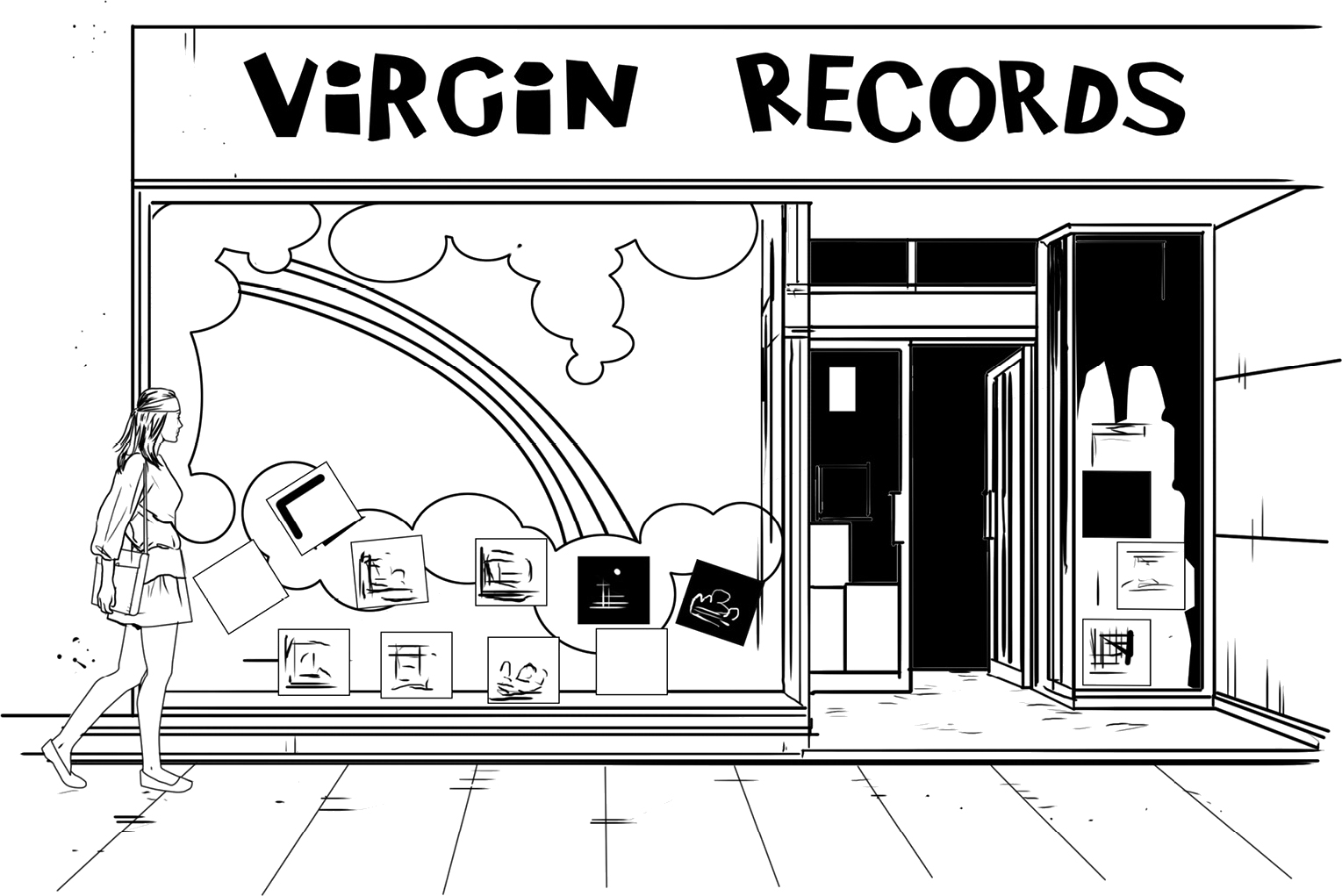
Richard created a store that welcomed teenagers. The staff was young and eager to talk about new music. Customers could listen to music on headphones before they bought it. Richard also made sure the store carried records that customers couldn’t easily find anywhere else. Many of these records came from other European countries or the United States. His young customers appreciated the effort Richard made for them. They felt that Richard cared about them because he was one of them. Kids, teenagers, and young adults flocked to Virgin Records.
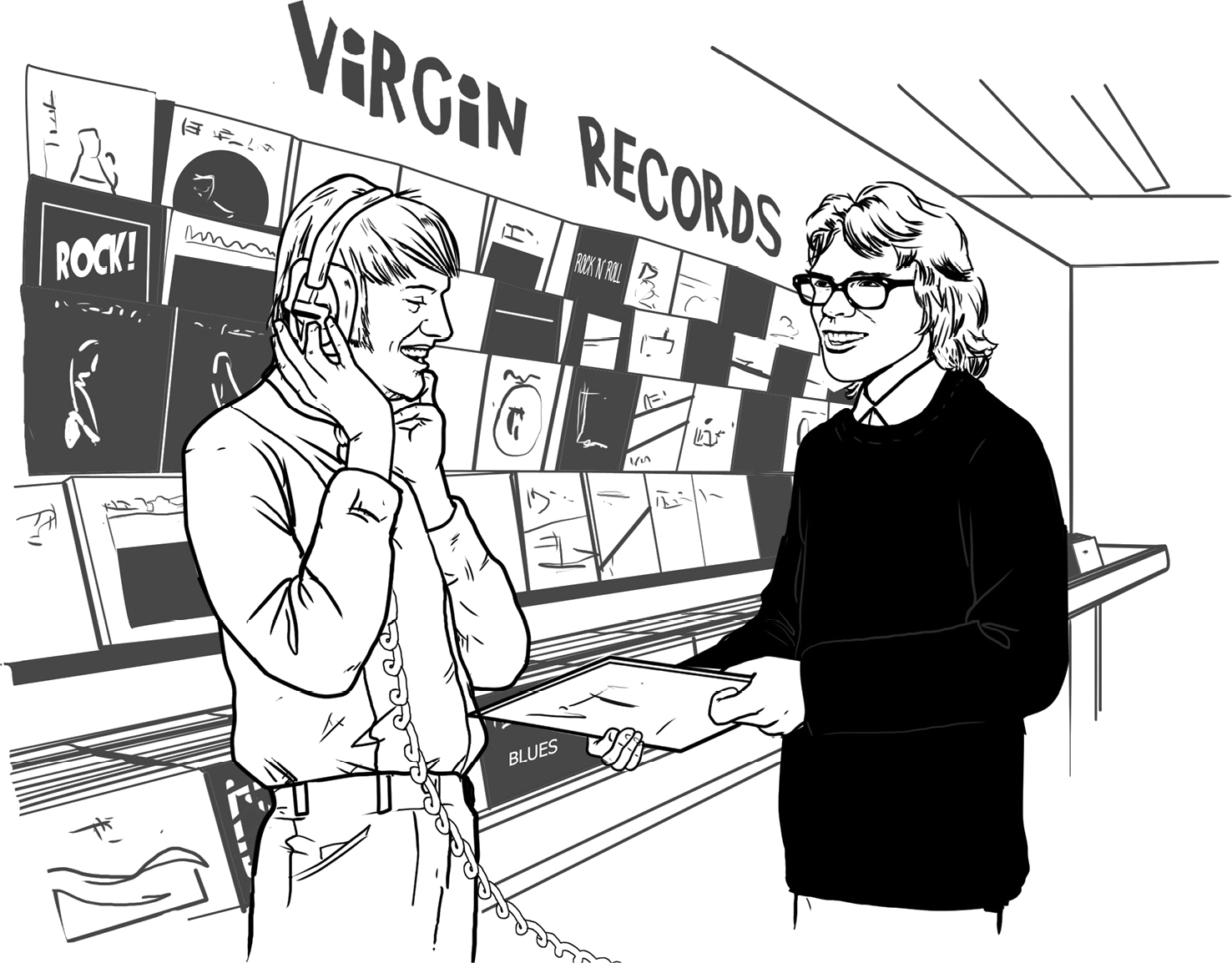
Running his record business, however, was not always easy. The expenses of running Virgin Mail Order grew, and sometimes customers claimed they never received a certain record when they actually had. Richard had to take their word and send another record. That meant he lost money.

In 1970, Richard bought a mansion in a village called Shipton-on-Cherwell. The large home had been built in the seventeenth century and had acres of woods surrounding it. Richard called it the Manor. He wanted to turn it into a recording studio where bands could live while they recorded their music. But it was an expensive idea. To buy the Manor, Richard had to borrow money from a bank and from his family. His debts soared.
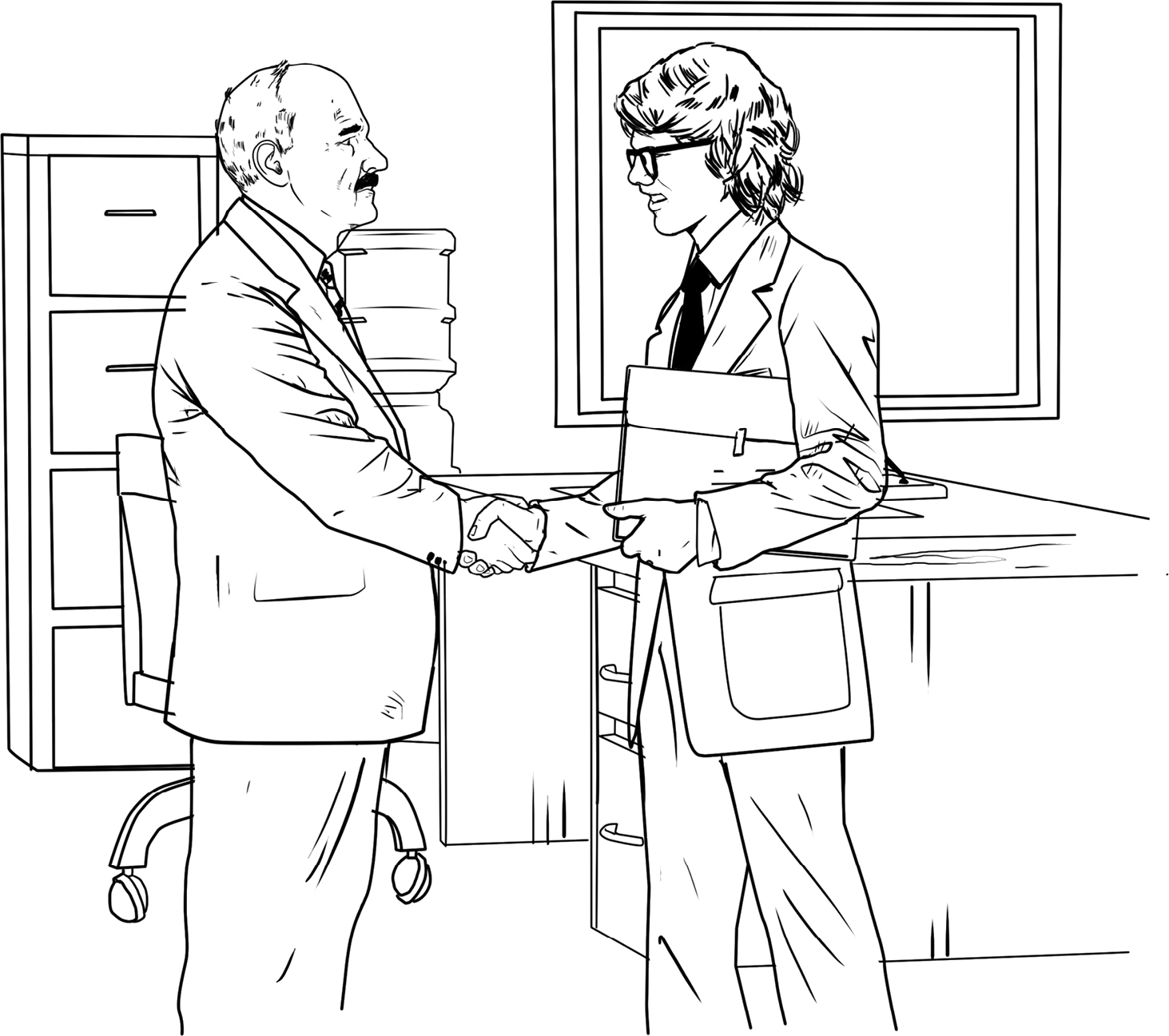
To save money, Richard did not pay the British government taxes on several orders of records. He wanted to use the tax money to pay his debts. Richard knew this wasn’t the right thing to do. But he told himself he would start paying the taxes after he paid back the money he owed the bank.

Before that could happen, Richard was caught and arrested. He was ashamed, but later he called the arrest “one of the best things that has ever happened to me.” In school, he had always enjoyed breaking or challenging the rules. But now he saw that in business, he could not break the law. He came to an agreement with the British government. He would pay all the taxes plus a fine. With the help of his family, he paid the government what he owed. And he promised himself he would never break the law again.
Then Richard took the first steps toward making the Virgin name famous around the world.